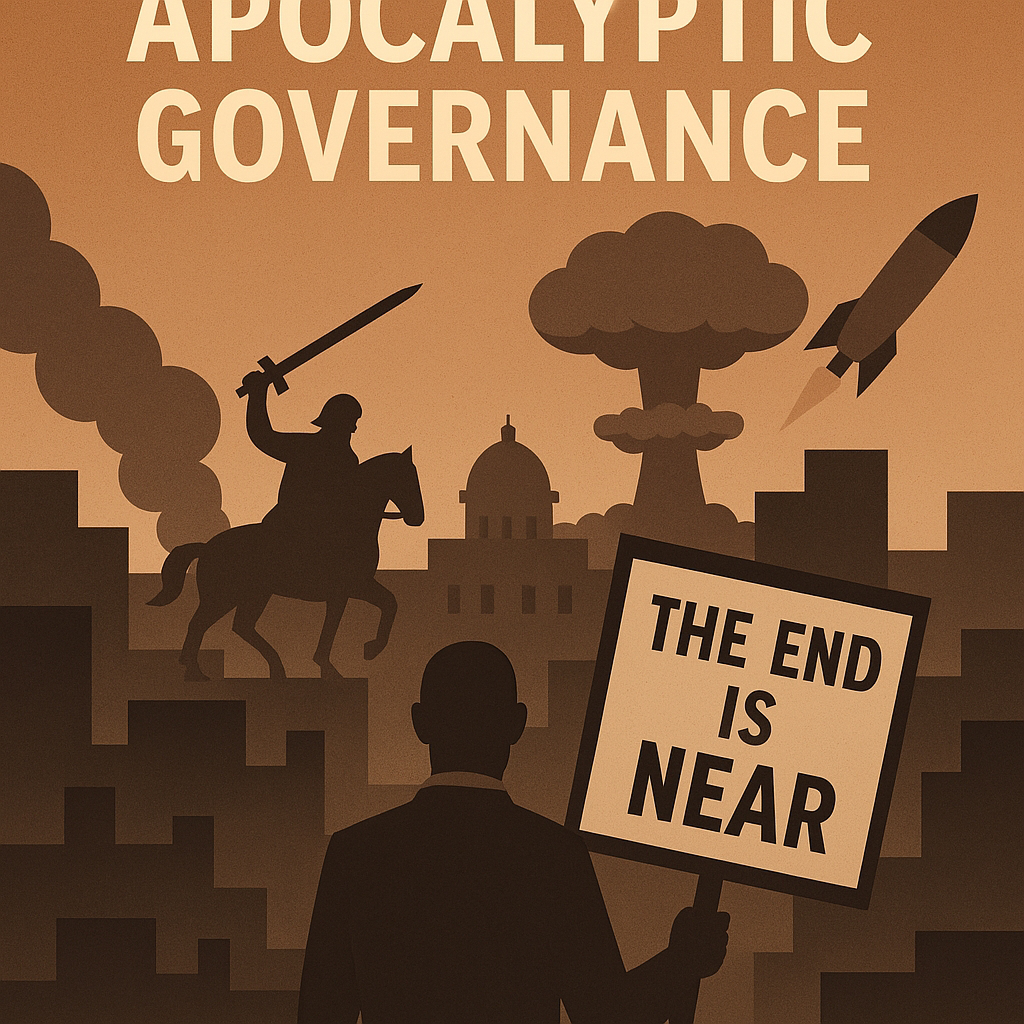The Danger of Apocalyptic Governance
In the course of history, political ideologies have taken many forms. Some are grounded in economic theories, others in visions of national identity, liberty, or progress. But in the 21st century, we are witnessing something altogether more dangerous: the resurgence of apocalyptic thinking within governance.
Apocalyptic governance is not just the belief that the world is nearing collapse. It is the conviction that collapse is inevitable, even desirable, as part of a divine or historic plan. And more dangerously, that leaders have a role to play in accelerating it.
This mindset is not limited to fringe groups. It is increasingly embedded in the policies and rhetoric of powerful political movements and governments, particularly in the Middle East and parts of the West. When ancient religious prophecy becomes a framework for modern statecraft, the results are perilous.
Consider the concept of Greater Israel, held by some within the Israeli political establishment and strongly supported by Christian Zionists in the United States. For many adherents, this vision is not just about land—it is about fulfilling biblical destiny. It sees geopolitical negotiation as heresy, and territorial expansion as sacred duty.
This vision often draws from the Book of Revelation, a highly symbolic and controversial text in Christian scripture. Revelation describes a sequence of divine judgements: the breaking of seven seals, the sounding of seven trumpets, and the pouring of seven bowls of wrath. It culminates in the great battle of Armageddon, where forces of good and evil clash before the final judgement. The arc moves from judgement and destruction to renewal and eternal peace — but only, unbelievably, after a total purification of the world through fire, war, and divine justice. It is a worldview that sees history as linear, redemptive, and final.
For secular observers, it may seem incredible that such imagery could play a role in modern politics. But in the United States, influential evangelical groups openly support policies aligned with this eschatology. In the Islamic world, some extremist movements also view current conflicts through a similar apocalyptic lens. These beliefs are not only shaping public opinion—they are influencing foreign policy, military action, and diplomatic inertia.
Apocalyptic thinking reframes compromise as weakness and demonises opposition as evil. It replaces policy debate with moral absolutes. And it renders long-term planning irrelevant, because the end is always near.
It is therefore essential that the public, especially in democratic societies, recognises and resists the infiltration of such ideology into governance. This begins with education: understanding the symbolic nature of apocalyptic texts, the history of their interpretations, and their misuse in political discourse.
We must also amplify voices—both secular and religious—that advocate for peace, stewardship, and cooperation over confrontation. Judaism, Christianity, and Islam all contain rich traditions of ethical responsibility, care for creation, and the pursuit of justice. These must be separated from the narrow eschatologies that seek to turn faith into a battlefield.
The idea that the world must be destroyed in order to be saved is a dangerous myth. In the hands of those with power, it becomes not just a belief, but a blueprint. And that is not a religious question - it is a matter of survival.
It is time to reclaim governance as a discipline of responsibility, not redemption. The stakes are too high for anything less.








0 comments:
Post a Comment
Keep it clean, keep it lean